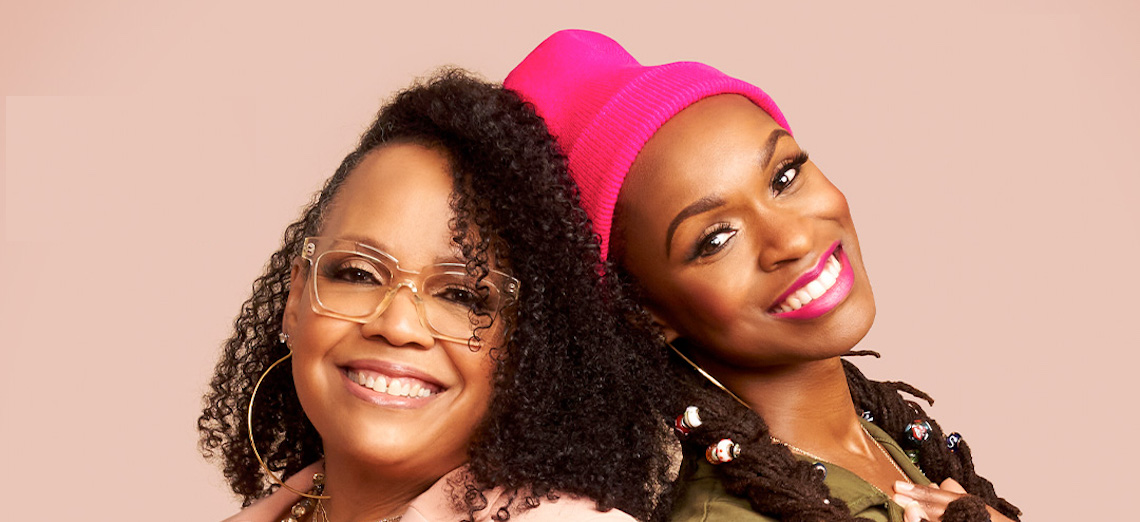With the Black maternal mortality crisis in the U.S. worsening in recent years despite greater awareness of the issue, beauty companies have been putting their corporate social responsibility efforts toward addressing it.
Earlier this month, Carol’s Daughter announced that it is going into the second year of its program sponsoring doula services for Black birthing people. The program is part of its Love Delivered initiative with the Mama Glow Foundation, which was founded by doula Latham Thomas. Carol’s Daughter is the latest major beauty company to announce efforts to address the crisis through sponsorship of doulas, as well as through initiatives to drive awareness of the issue and support legislation.
“We wanted to have a philanthropic effort about something we were passionate about within Carol’s Daughter,” said Lisa Price, founder of Carol’s Daughter founder. “[It was an issue] we didn’t feel was getting enough notice.”
She added, “It was something that I was very passionate about, on a personal level, because my own birth experience was not as ideal as I would have wanted it to be. However, it was better than it could have been because I was able to have someone there who acted as a doula.”
CDC data shows that Black women are three-times more likely to die from a pregnancy-related cause than white women, citing structural racism and implicit bias among medical staff among the contributing factors. An estimated 60% of those deaths are preventable, and Black newborn babies are 3x more likely than white babies to die when looked after by white doctors. Deaths are disproportionately higher when controlling for age, income and education levels. High-profile public figures have come forward with their own stories in recent years: Serena Williams, for example, shared her own near-death experience in 2018. During the pandemic, the numbers have worsened.
“In the past two years, we’ve seen a lot more momentum,” in terms of action taken on the issue, said Thomas. “We’re seeing incremental shifts in how policy is shaping around these issues, largely due to social media and being able to voice what’s happening.”
The Carol’s Daughter initiative paired doulas with 17 families in January and plans to pair a total of 40 by the end of the year. Dove, meanwhile, is also sponsoring doula services through its Black Birth Equity Fund. It announced this month that it’s expanding the fund in 2022, after seeing an “overwhelming” amount of interest and applicants in 2021. The brand is doing so in partnership with the Black Mamas Matter Alliance, for which it is a strategic partner.
“One major complaint heard time and time again from Black expectant mothers and birthing people is that they often feel unheard by professional health care providers while discussing their health, progress and concerns during appointments. [They also said] they were not receiving the full range of education to help inform their decisions throughout their birthing journey,” said Angela D. Aina, co-founding executive director at Black Mamas Matter Alliance (BMMA) and a strategic advisor for Baby Dove. “The added support of a doula can help to fight this maternal care bias by accompanying an expectant mother to appointments before and after birth. [They can] even be present in the labor and delivery room, to make sure they are heard and understand all of the options within their plan of care.”
In focus groups conducted by the BMMA with Black women, doulas and midwives, “what has immediately bubbled up is the traumatic and, sometimes, violent experiences that Black women face in the hospital system. There’s a lot of mistreatment, disrespect and abuse,” said Aina.
Ad position: web_incontent_pos1
The Mama Glow Foundation, meanwhile, has been working with the city of New York to “normalize the presence of doulas in delivery rooms and hospitals,” said Price. She stated that the goal is to work “toward the medical professionals and the doula having a better relationship, and for this to not be such a foreign thing or an ‘it only happens sometimes’ kind of thing. [We want] it to start to become more normal.”
Doulas are just one part of the picture in fighting the crisis. Brand initiatives have also been directly aimed at policymakers and advocacy for legislation on the issue. In December, Love Delivered announced its financial commitment of $250,000 in alignment with the White House’s Maternal Day of Action in 2021.
The 5-year-old BMMA has been especially active with legislation. That’s included advocating for the 2020 and 2021 introductions of the Black Maternal Health Momnibus Act, and the official recognition of Black Maternal Health Week by the White House in 2021 and 2022. It’s also campaigned to help pass Senate Bill 338 in Georgia, extending postpartum Medicaid coverage to a full year.
Experts have been critical of corporate involvement in the issue. In 2020, Kimberly Seals Allers wrote in Refinery29 that profit-led initiatives by major corporations undermined already existing efforts. She specifically pointed out that Johnson & Johnson had led a search for an executive for a new venture to address Black maternal mortality, despite “decades of Black people working on the issue in earnest and, more recently, a new crop of Black female founders rooted in the community developing technology and design solutions showing there was viability and profitability in our ideas, even without the same access to capital.” These include apps allowing consumers to rate and research reviews of medical providers.
Overall, “there’s been some significant progress in the past year” to drive change on the issue, said Price, with “tons more to come.”
“In order to improve the quality-of-care Black women receive, it’s essential for medical experts to take qualitative data sources seriously — to really listen to women’s stories, in order to understand the many ways they’re currently being failed in labor and delivery wards around the country,” said Aina.




